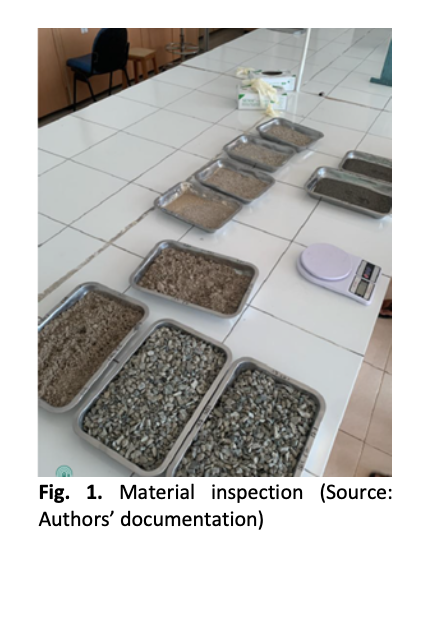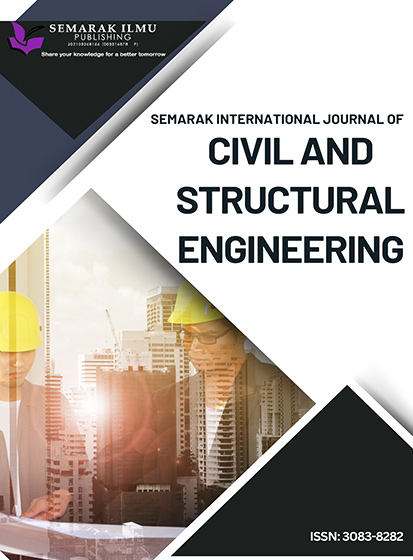Study on the Effect of Bamboo Charcoal Powder Addition on Concrete Compressive Strength
DOI:
https://doi.org/10.37934/sijcse.6.1.111Keywords:
Bamboo charcoal powder, biochar, compressive strength, concrete, sustainable constructionAbstract
This research investigates the effect of adding bamboo charcoal powder as a partial replacement for cement in concrete mixtures to develop a more sustainable construction material. The study addresses the environmental impact of cement production, which contributes approximately 7% of global CO₂ emissions, by exploring bamboo charcoal powder (a waste product rich in silica and calcium) as an alternative pozzolanic material. Experimental work was conducted by substituting cement with bamboo charcoal powder at levels of 6%, 10%, and 12%, while a control sample without bamboo powder served as a benchmark. A total of 24 cylindrical specimens (150 mm × 300 mm) were tested for compressive strength at 7 and 28 days. The results showed that the 10% bamboo charcoal powder mix achieved the highest compressive strength, recording a 14.5% increase compared to the control at 28 days. However, higher replacement levels (12%) led to strength reduction due to reduced cementitious content. The slump test results indicated decreased workability with increased bamboo powder content, attributable to the material’s high water absorption. This research is significant as it offers a sustainable solution to reduce carbon emissions in the construction industry by demonstrating that bamboo charcoal powder, an abundant waste material, can effectively replace a portion of cement in concrete mixtures while enhancing compressive strength and promoting environmentally friendly, low-carbon building practices.













